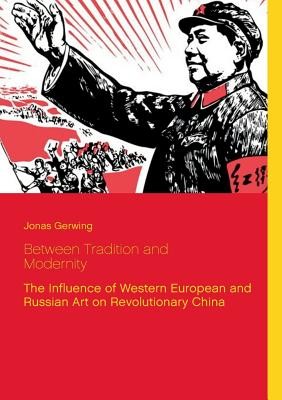
- We will send in 10–14 business days.
- Author: Jonas Gerwing
- Publisher: Books on Demand
- Year: 2014
- Pages: 156
- ISBN-10: 3735720501
- ISBN-13: 9783735720504
- Format: 14.8 x 21 x 0.9 cm, minkšti viršeliai
- Language: English
- SAVE -10% with code: EXTRA
Between Tradition and Modernity - The Influence of Western European and Russian Art on Revolutionary China (e-book) (used book) | bookbook.eu
Reviews
Description
The main concern of this culture-historical study consists in the critical analysis of the evolution and development of Modern art in China following the demise of the Qing-dynasty (1911) up to the ideological dissociation of the People's Republic from the Soviet Union during "the Great Leap Forward" (1958-62). Hereby, the focus will be put on illustrating different analytical approaches in order to understand the mechanisms of producing national culture and arts in China of the first half of the 20th century. Relating to the given topic of this analysis, the process of remodeling or modernizing Chinese national identity uttered the essential question of how artistic and cultural traditions should be perceived by the people in the future. The question remains if a specific (national) cultural identity can be created without the preservation of or self-reference to cultural heritages of the nation's past. Following Communist ideological reasoning, the collective national identity of the Chinese society should be remodeled in the manners of Socialism. Cultural spheres created by arts and literature should, therefore, accelerate the people's transition towards a 'classless' society. In its historical appearance, Mao's interpretation and perception of 'Socialism' had a lasting effect on defining or limiting the society's collective (national) identity.
EXTRA 10 % discount with code: EXTRA
The promotion ends in 23d.04:55:54
The discount code is valid when purchasing from 10 €. Discounts do not stack.
- Author: Jonas Gerwing
- Publisher: Books on Demand
- Year: 2014
- Pages: 156
- ISBN-10: 3735720501
- ISBN-13: 9783735720504
- Format: 14.8 x 21 x 0.9 cm, minkšti viršeliai
- Language: English English
The main concern of this culture-historical study consists in the critical analysis of the evolution and development of Modern art in China following the demise of the Qing-dynasty (1911) up to the ideological dissociation of the People's Republic from the Soviet Union during "the Great Leap Forward" (1958-62). Hereby, the focus will be put on illustrating different analytical approaches in order to understand the mechanisms of producing national culture and arts in China of the first half of the 20th century. Relating to the given topic of this analysis, the process of remodeling or modernizing Chinese national identity uttered the essential question of how artistic and cultural traditions should be perceived by the people in the future. The question remains if a specific (national) cultural identity can be created without the preservation of or self-reference to cultural heritages of the nation's past. Following Communist ideological reasoning, the collective national identity of the Chinese society should be remodeled in the manners of Socialism. Cultural spheres created by arts and literature should, therefore, accelerate the people's transition towards a 'classless' society. In its historical appearance, Mao's interpretation and perception of 'Socialism' had a lasting effect on defining or limiting the society's collective (national) identity.


Reviews